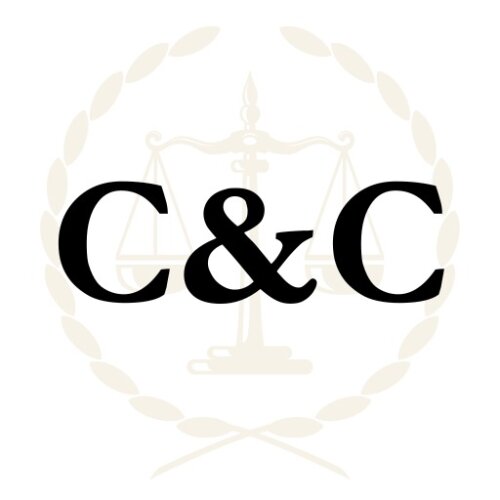Best Divorce & Separation Lawyers in Seremban
Share your needs with us, get contacted by law firms.
Free. Takes 2 min.
Free Guide to Hiring a Family Lawyer
List of the best lawyers in Seremban, Malaysia
About Divorce & Separation Law in Seremban, Malaysia
Divorce and separation law in Seremban, Malaysia, falls under the jurisdiction of the Malaysian legal system, which is based on a combination of secular and Islamic laws. The legal processes are designed to address various aspects such as the dissolution of marriage, child custody, division of assets, and spousal support. The process and grounds for divorce can vary widely depending on whether the couple is married under civil or Islamic law. Understanding the specifics of how these laws apply in Seremban is crucial for those seeking to navigate the legal landscape during a divorce or separation.
Why You May Need a Lawyer
There are several common situations in which individuals may require legal assistance during a divorce or separation in Seremban:
- Complex Asset Division: When a couple's assets are extensive or complicated, a lawyer can help fairly distribute marital property.
- Disputes over Child Custody: Legal expertise is often needed to ensure the best interests of the child are prioritized in custody arrangements.
- Spousal Maintenance Claims: Understanding entitlements and obligations related to spousal support can require professional guidance.
- Enforcement of Prenuptial Agreements: A lawyer can help navigate the enforcement or contestation of prenuptial agreements.
- Contested Divorces: When both parties cannot agree on the terms of divorce, litigation may be necessary.
Local Laws Overview
In Seremban, Malaysia, the divorce process is largely governed by the Law Reform (Marriage and Divorce) Act 1976 for civil marriages and the Islamic Family Law Enactment for Muslim marriages. Key aspects include:
- Grounds for Divorce: Under civil law, grounds include irretrievable breakdown of marriage, adultery, unreasonable behavior, and desertion. Islamic law permits divorce through mutual consent, talak, or judicial intervention.
- Child Custody and Support: Decisions are made with the child's welfare as the primary concern. Both parents have a responsibility to provide for the child’s maintenance.
- Property Division: Division of assets is equitable but not necessarily equal, considering each spouse's contribution, needs, and future outlook.
- Alimony/Spousal Support: Courts may order maintenance payments, considering the needs of the spouse seeking support and the assets and income of both parties.
Frequently Asked Questions
What are the grounds for divorce in Malaysia?
In civil marriages, grounds include irretrievable breakdown, separation for two years, adultery, or unreasonable behavior. In Islamic marriages, a divorce may be obtained through mutual agreement or specified conditions met for judicial separation.
How long does the divorce process take in Seremban?
The duration varies significantly depending on whether the divorce is contested or uncontested and the complexities involved. Uncontested divorces can take a few months, while contested cases may take longer.
Can we get a legal separation instead of a divorce?
Yes, legal separation is possible and allows couples to live separately without terminating the marriage. This can be beneficial for those who may wish to reconcile later or have religious objections to divorce.
How is child custody determined?
The welfare of the child is the court's primary consideration. Custody can be awarded to either parent or shared, depending on what serves the child's best interests.
Do both parties need to attend court for a divorce?
If the divorce is uncontested, the presence of both parties may not be required. For contested divorces, both parties will likely need to attend court proceedings.
How is property divided during a divorce?
Property division is based on contributions to the marriage, both financial and non-financial. Courts consider each party's future outlook and make equitable divisions.
What is the role of a mediator in divorce proceedings?
A mediator is an impartial third party who assists couples in reaching agreements on divorce-related issues outside of court. It can be a cost-effective and amicable way to resolve disputes.
Can spousal maintenance be adjusted after the divorce is finalized?
Yes, either party can request a modification if there's a significant change in financial circumstances post-divorce.
Will my spouse's debts affect me after divorce?
Debts incurred by a spouse that benefited the family may be subject to division just like assets, but this can vary based on the specifics of the case and agreements made during the divorce.
Is legal aid available for divorce cases in Seremban?
Legal aid can be accessed under certain conditions, often evaluated based on the individual's financial situation.
Additional Resources
Several resources can provide assistance and information for those dealing with divorce and separation:
- National Registration Department (JPN): Handles civil marriage registrations and terminations.
- Syariah Court: Provides services and guidance for those undergoing Islamic divorce processes.
- Legal Aid Bureau, Malaysia: Offers legal assistance for those who qualify.
- Non-Governmental Organizations: Organizations like AWAM and Women’s Aid Organisation provide support and resources for affected individuals.
Next Steps
If you need legal assistance with divorce or separation in Seremban, consider the following steps:
- Consult with a lawyer to understand your rights and options. Seek recommendations or directly contact law firms specializing in family law.
- Gather necessary documentation related to your marriage, finances, and any agreements already made with your spouse.
- Consider mediation services as a possible first step to amicably solving disputes.
- Assess whether you qualify for any kind of legal aid based on your financial and personal circumstances.
Seeking timely legal advice is crucial to ensure that your interests are protected throughout the divorce or separation process.
Lawzana helps you find the best lawyers and law firms in Seremban through a curated and pre-screened list of qualified legal professionals. Our platform offers rankings and detailed profiles of attorneys and law firms, allowing you to compare based on practice areas, including Divorce & Separation, experience, and client feedback.
Each profile includes a description of the firm's areas of practice, client reviews, team members and partners, year of establishment, spoken languages, office locations, contact information, social media presence, and any published articles or resources. Most firms on our platform speak English and are experienced in both local and international legal matters.
Get a quote from top-rated law firms in Seremban, Malaysia — quickly, securely, and without unnecessary hassle.
Disclaimer:
The information provided on this page is for general informational purposes only and does not constitute legal advice. While we strive to ensure the accuracy and relevance of the content, legal information may change over time, and interpretations of the law can vary. You should always consult with a qualified legal professional for advice specific to your situation.
We disclaim all liability for actions taken or not taken based on the content of this page. If you believe any information is incorrect or outdated, please contact us, and we will review and update it where appropriate.










